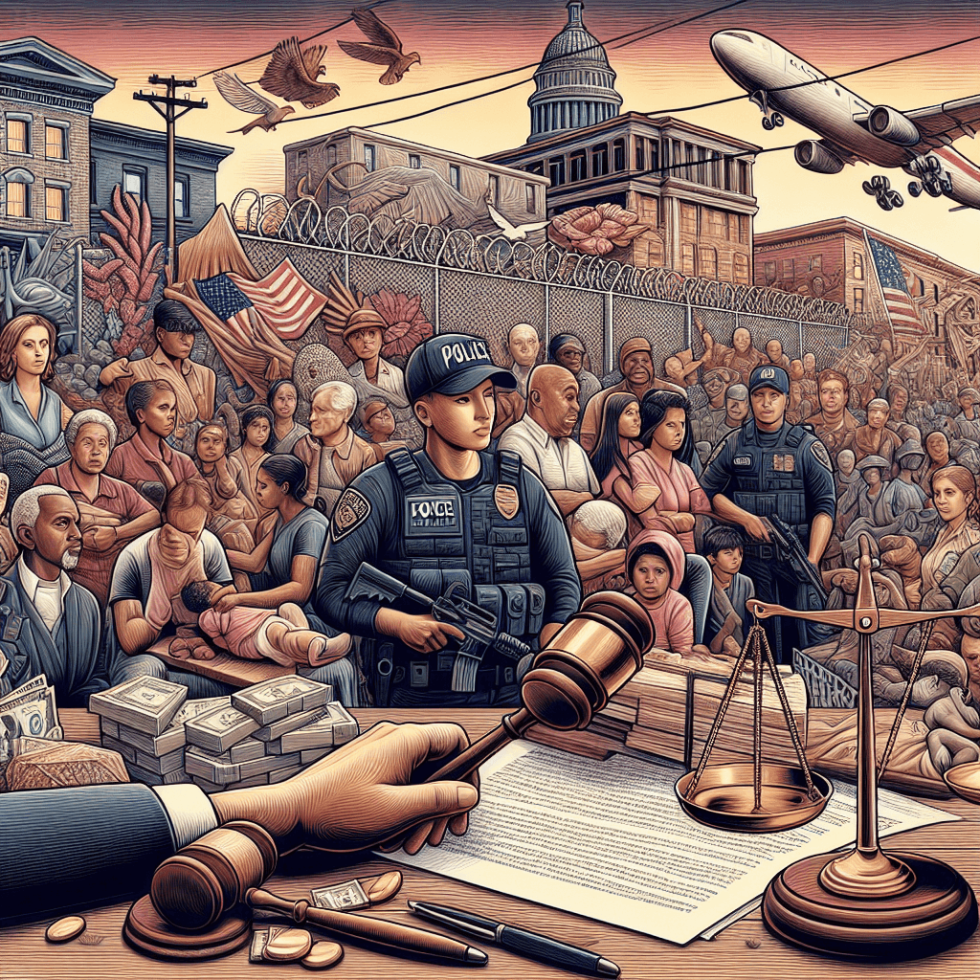
Introduction to the Current Immigration Debate
In a recent interview on “Face the Nation,” Homeland Security Secretary Kristi Noem made headlines when she stated, “we haven’t taken anything off the table” regarding the potential expansion of immigration enforcement operations to cities across the United States. This bold assertion opens a Pandora’s box of questions surrounding immigration policy, enforcement methods, and the implications for local communities.
The Background of Immigration Operations
Noem’s remarks come as Immigration and Customs Enforcement (ICE) is reportedly planning to expand its operations, particularly announcing imminent actions in Chicago. This move mirrors similar operations previously conducted in cities like Los Angeles. The focus is evidently on cities perceived to be grappling with crime and violence, a narrative that resonates deeply in the current political climate.
The Role of the Trump Administration
Noem’s comments indicate a continuation of strategies established during the Trump administration, which aimed at curtailing crime through aggressive immigration enforcement. The Trump administration’s actions—targeting “sanctuary cities” that limit cooperation with federal agents—have resulted in lawsuits and friction with state leaders. As Noem pointed out, the Department of Homeland Security (DHS) is committed to following President Trump’s directive to pursue the “worst of the worst” offenders across the country.
Local Opposition and the Challenge Ahead
Illinois Governor J.B. Pritzker has openly criticized the plans, branding Noem’s immigration enforcement stance as “dangerous” and “un-American.” This opposition encapsulates broader concerns that expanding ICE operations could lead to increased tension within communities, where long-time residents might suddenly find themselves at risk of deportation. Pritzker emphasized that many individuals targeted by these raids are law-abiding citizens who contribute positively to their communities.
The Impact on Communities
The potential consequences of expanding immigration operations can’t be understated. Communities across the United States have seen shifts in local demographics due to the fear and uncertainty created by federal immigration enforcement. As Pritzker aptly pointed out, individuals who have been living and working in the U.S. for years fear becoming casualties of this aggressive posture. The question remains: Is this the most effective method to address crime, or does it sow discord and danger instead?
Resources and Federal Support
Noem underscored that the DHS is prepared to allocate additional resources to these operations, thus hinting at a comprehensive strategy behind this initiative. However, this raises further questions about the funding and support structures in place. Will these expansions be backed by adequate resources that ensure both public safety and respect for civil rights?
Integrating Community and Federal Efforts
Kristi Noem also encouraged collaboration between city leaders and the federal government to enhance public safety. This plea for cooperation could pave the way for a more integrated approach to law enforcement. Pritzker noted that Chicago already works closely with federal agencies like the FBI and ATF, raising questions about why immigration enforcement needs to fall outside this cooperative framework.
Political Ramifications and Future Prospects
The political landscape surrounding immigration operations remains fraught with tension. Noem’s assurance that every major city, irrespective of its political affiliation, will be evaluated for potential enforcement underscores a broader strategy that transcends partisan lines. But, will this drive create further division between state and federal jurisdictions, or can it result in a cohesive strategy to enhance public safety?
The Question of Oversight and Accountability
As immigration enforcement takes center stage in political talks, oversight becomes crucial. With plans in motion that not only include increased ICE operations but may also involve the deployment of the National Guard, the need for checks and balances has never been more apparent. Critics argue that without proper oversight, these measures may lead to abuses and profiling that disproportionately affect minority communities.
Broader Implications on Immigration Policy
Looking forward, the ongoing policy discussions will likely shape the future of immigration in the United States. As Noem stated that “everything is on the table,” it indicates a willingness to adapt strategies in response to evolving circumstances. This flexible approach to immigration operations could impact not only individual cities but also the national discourse on how the U.S. handles immigration and crime.
Conclusion: The Balancing Act
In light of Kristi Noem’s statements and the unfolding scenarios in major cities across the U.S., the balancing act between enforcing laws and respecting community rights is at the forefront of public debate. As outlined in her interview, the methodologies of enforcement and the collaboration (or lack thereof) between state and federal authorities will be closely scrutinized. While the goal is ostensibly to reduce crime, the effects of these operations on everyday citizens remain a point of contention that cannot be overlooked.
For more details, you can refer to the full report on CBS News: Kristi Noem on Homeland Security Operations
To learn about the disclaimer of liability for the content of this website, click here




